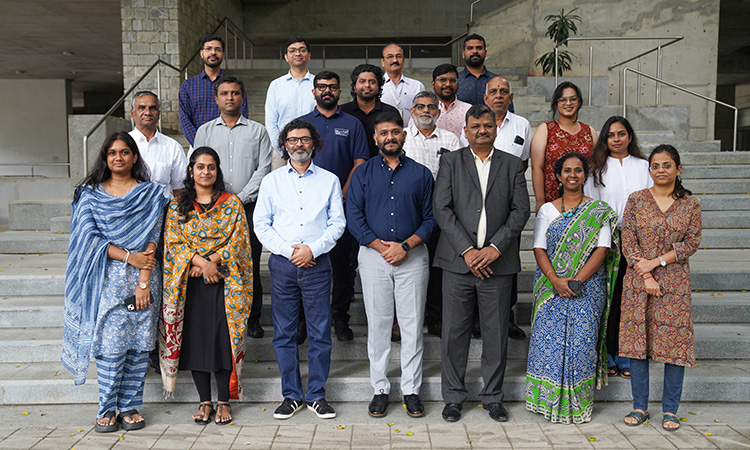Bharat ZET Policy Advisory Consultation Session held at IIMB to accelerate zero-emission transport in India

Industry leaders, policymakers, and researchers convene to shape India’s roadmap for Zero-Emission Transport under the e-FAST India initiative
18 November 2025, Bengaluru: The Bharat ZET Policy Advisory Consultation Session was conducted by the TCI-IIMB Supply Chain Sustainability Lab at the Indian Institute of Management Bangalore (IIMB) as part of the e-FAST India platform led by NITI Aayog, with support from the Office of the Principal Scientific Adviser to the Government of India. The session brought together key stakeholders from industry, logistics, EV infrastructure, research institutions, and academia to collaboratively identify pathways for accelerating Zero-Emission Transport (ZET) adoption across the country.
Dr. Aditya Gupta, COO, Supply Chain Management Centre, welcomed the participants and set the context for the discussions. Representatives Chandana and Kaustubh from WRI India presented an overview of the Bharat ZET Policy Advisory and facilitated an interactive dialogue to better understand current on-ground challenges and opportunities.
A Mentimeter-based interactive segment invited participants to share insights on priority improvements for future demand incentives, highlighting real-world bottlenecks and potential policy interventions. Dr. Gupta also showcased the TEMT tool and the Carbon Accounting Tool, highlighting their role in enabling data-backed decision-making for organizations working toward ZET goals.
The session witnessed active participation from prominent organizations, including Ingka Group (IKEA), Amazon India, Numocity, Fortum, NKTS Logistics, Statiq, and Sun Mobility. Their contributions enriched the discussion with diverse perspectives, making the consultation insightful and action-oriented.
The Bharat ZET Policy Advisory Consultation Session marks another step toward strengthening India’s commitment to sustainable mobility and fostering collaboration among stakeholders, driving the ZET transition.
Bharat ZET Policy Advisory Consultation Session held at IIMB to accelerate zero-emission transport in India
Industry leaders, policymakers, and researchers convene to shape India’s roadmap for Zero-Emission Transport under the e-FAST India initiative
18 November 2025, Bengaluru: The Bharat ZET Policy Advisory Consultation Session was conducted by the TCI-IIMB Supply Chain Sustainability Lab at the Indian Institute of Management Bangalore (IIMB) as part of the e-FAST India platform led by NITI Aayog, with support from the Office of the Principal Scientific Adviser to the Government of India. The session brought together key stakeholders from industry, logistics, EV infrastructure, research institutions, and academia to collaboratively identify pathways for accelerating Zero-Emission Transport (ZET) adoption across the country.
Dr. Aditya Gupta, COO, Supply Chain Management Centre, welcomed the participants and set the context for the discussions. Representatives Chandana and Kaustubh from WRI India presented an overview of the Bharat ZET Policy Advisory and facilitated an interactive dialogue to better understand current on-ground challenges and opportunities.
A Mentimeter-based interactive segment invited participants to share insights on priority improvements for future demand incentives, highlighting real-world bottlenecks and potential policy interventions. Dr. Gupta also showcased the TEMT tool and the Carbon Accounting Tool, highlighting their role in enabling data-backed decision-making for organizations working toward ZET goals.
The session witnessed active participation from prominent organizations, including Ingka Group (IKEA), Amazon India, Numocity, Fortum, NKTS Logistics, Statiq, and Sun Mobility. Their contributions enriched the discussion with diverse perspectives, making the consultation insightful and action-oriented.
The Bharat ZET Policy Advisory Consultation Session marks another step toward strengthening India’s commitment to sustainable mobility and fostering collaboration among stakeholders, driving the ZET transition.
